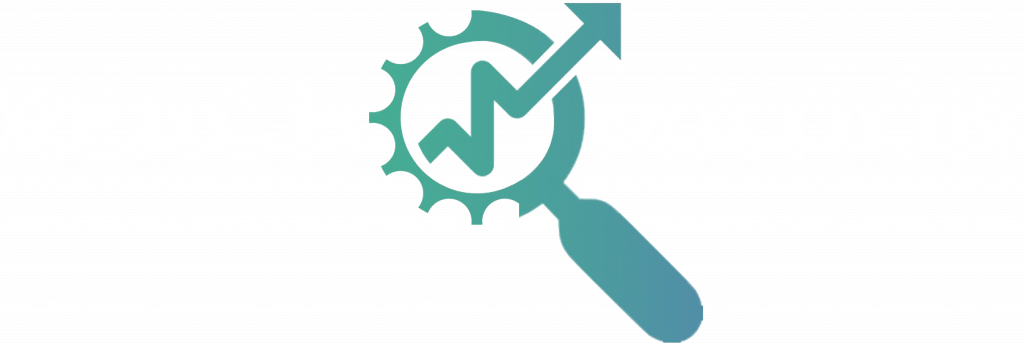There’s a lot of debate in the online world about PPC vs CPC. Which is better? Well, it depends on your perspective. If you’re a business owner, you’re probably more interested in CPC, because that’s what directly affects your bottom line. But if you’re a web surfer, you might be more interested in PPC, because that’s what determines how many ads you see while you’re browsing.
What is PPC?
PPC is an advertising model in which advertisers pay each time a user clicks on one of their online ads. The “pay-per-click” model is popular because it allows businesses to avoid the risks associated with traditional advertising models, such as print ads in newspapers or magazines.
With PPC, businesses only have to pay when someone actually clicks on their ad, so there is no wasted money on ads that no one sees. For this reason, PPC can be an effective way to reach potential customers who are actively searching for a product or service that your business offers.
There are a few different ways to set up a PPC campaign, but the most common is through Google AdWords. AdWords allows businesses to create text-based ads that appear on Google’s search engine results pages (SERPs). When someone searches for a keyword that your business has targeted, your ad may appear alongside the SERP results. There is also a best PPC tools that help you to manage campaign
If the searcher clicks on your ad, they will be taken to your website, and you will be charged a fee (usually a few cents or dollars) for the click. The amount you pay per click will depend on how competitive your chosen keywords are.
What is CPC?
Cost per click (CPC) is an online advertising pricing model, where advertisers pay a set fee each time their ad is clicked. CPC bidding means that you’re paying for each click on your ad, regardless of whether or not the user goes on to make a purchase.
CPC is often used as a pricing model for search engine marketing (SEM) and display advertising. In SEM campaigns, advertisers bid on keywords that they think users will search for when they’re looking for products or services like theirs. In display advertising, CPC bidding is usually used to buy advertising space on websites.
PPC vs CPC: Which is better for your business?
There is a lot of debate in the online marketing world about which is better for businesses: pay-per-click (PPC) advertising or cost-per-click (CPC) advertising. Both have their pros and cons PPC vs CPC, and the best option for your business will depend on a number of factors, including your budget, your goals, and your target audience.
Here is a quick overview of each option to help you decide which is right for you:
Pay-Per-Click (PPC) Advertising:
Pros:
- You only pay when someone clicks on your ad, so you can control your budget.
- PPC ads can be very effective in driving traffic to your website.
- You can target specific demographics with PPC ads, making them more effective than other forms of advertising.
Cons:
- PPC ads can be expensive, particularly if you are in a competitive market.
- It can take time to set up an effective PPC campaign.
- There is a risk that people will click on your ad without being genuinely interested in your product or service, which can waste your budget.
Cost Per Click (CPC) Advertising:
Pros:
- CPC ads are generally cheaper than PPC ads.
- You only pay when someone clicks on your ad, so you can control your budget.
Cons:
- The effectiveness of CPC advertising depends on how well you target your audience. If your targeting is not effective, you could end up wasting money on clicks from people who are not interested in your product or service
How does PPC work?
PPC is an advertising model in which businesses pay a fee each time one of their ads is clicked. The “pay-per-click” model is popular because it gives businesses control over their advertising costs, allowing them to set a budget and only pay when their ads are clicked.
CPC, or cost-per-click, is a type of pricing model used in online advertising. In CPC advertising, advertisers pays a set price for each click on their ad. CPC is a popular pricing model because it allows advertisers to control their costs, as they only pay when their ads are clicked.
How to calculate CPC
In online advertising, cost-per-click (CPC) and pay-per-click (PPC) are terms used to describe pricing models. cost per click is the amount an advertiser is willing to spend on a single click from a user. CPC is represented by a price in currency, CPC = cost/clicks. PPC is an online advertising model in which advertisers display ads on search engines and other websites, and pay when users click on their ads. The advertiser only pays when their ad is clicked, hence the name “pay-per-click.”
How much does online advertising cost?
When you’re trying to decide how much to spend on online advertising, one of the most important factors to consider is cost per click (CPC) vs cost per thousand impressions (CPM).
CPC is the amount you pay each time someone clicks on your ad. CPM is the amount you pay each time your ad is shown 1,000 times.
Generally, CPC is a more effective pricing model for advertisers because they only pay when someone takes an action that they’re interested in, such as clicking on an ad. CPM can be effective for brand awareness campaigns where the goal is to get as many people to see the ad as possible.
However, CPC rates can vary greatly depending on the industry and keywords you’re targeting. For example, CPC rates for legal keywords tend to be much higher than average because advertisers are willing to pay a lot for those clicks.
To get an idea of how much CPC rates vary, take a look at this list of average CPC rates by industry:
- Auto: $2.61
- B2B: $3.75
- Beauty: $0.80
- Consumer Services: $4.29
- Dating & Personals: $1.91
- Ecommerce: $1.54
- Education: $3.77
- Employment: $5.64
- Finance & Insurance: $3.92
- Health & Medical: $2.92
- Home & Garden: $1.90 Industry Average CPC
How Does CPC Work?
CPC stands for cost-per-click, and it’s a type of online advertising where businesses pay a fee every time someone clicks on one of their ads. PPC is an effective way to drive traffic to your website, and it can be used on a variety of online platforms, including Google, Bing, Facebook, and more.
To run a CPC campaign, you’ll need to bid on keywords that you think people will search for when they’re looking for products or services like yours. When someone searches for one of your keywords, your ad will appear in the search results, and you’ll only be charged if someone clicks on your ad.
CPC campaigns can be a great way to get noticed by potential customers, and they can be very effective in driving traffic to your website. However, they can also be expensive if you don’t carefully manage your keyword bids.
Why Should You Use PPC Advertising?
PPC advertising is a form of advertising where you pay per click, meaning that you only pay when someone actually clicks on your ad. This can be a great way to get targeted traffic to your website, and it can be very effective in terms of conversion rate. However, it’s important to understand the difference between PPC and CPC (cost-per-click) before you start using this form of advertising.
PPC is a form of online advertising in which you pay each time someone clicks on your ad. The amount you pay depends on how popular the keywords you’ve chosen are, and how much competition there is for those keywords. CPC is the cost-per-click that you pay for each click on your ad. The main difference between PPC and CPC is that with PPC, you’re only paying for actual clicks, while with CPC, you’re paying for every potential customer who sees your ad.
There are a few things to keep in mind when using PPC advertising. First, make sure that your ad is relevant to the keywords you’ve chosen. If people click on your ad but don’t convert into customers, then you’re wasting your money. Second, don’t overspend on your PPC campaign. It’s easy to get carried away and spend more than you intended, so set a budget and stick to it. Finally, be prepared to adjust your campaign as needed. If you’re not getting the results you want, then make changes to improve your performance.
The pros and cons of PPC vs CPC
There are a lot of acronyms in the world of online marketing, and two of the most common are PPC and CPC. These terms are often used interchangeably, but they actually refer to two different types of online advertising. So, what’s the difference between PPC and CPC?
PPC stands for pay-per-click, and it refers to the amount you pay for each click on your ad. CPC, on the other hand, stands for cost-per-click, and it refers to the amount you pay for each click on your ad divided by the number of clicks that your ad received.
Both PPC and CPC are important metrics to consider when you’re running an online ad campaign. However, which one is more important will depend on your specific goals and objectives. Here are some pros and cons of PPC vs CPC to help you decide which metric is right for you:
PPC Pros:
- You only pay when someone clicks on your ad, so you can avoid wasting money on ads that no one sees.
- PPC can be a more effective use of your budget if you have a limited amount to spend.
CPC Pros: - CPC gives you a more accurate measure of how effective your ad is at generating clicks.
- CPC can help you track your return on investment (ROI) more effectively.
PPC Cons:
- PPC can be more expensive in the long run if your ads are not generating many clicks.
- PPC can be difficult to track if you’re not using conversion tracking software.
CPC Cons:
- CPC can be less effective if you have a limited budget because you still have to pay even if no one clicks on your ad.
Conclusion – PPC vs CPC
In conclusion, there are pros and cons to both PPC vs CPC advertising strategies. It really depends on your business goals as to which one will be a better fit. If you want more control over your budget and want to focus on attracting quality leads, then PPC might be the way to go. If you have a limited budget and want to reach as many people as possible, then CPC would probably be a better option.
Did You Like This Article –
If you like this article you can read about best SERP tracking tool. It will help you to improve your SEO strategy.


Leave a Reply